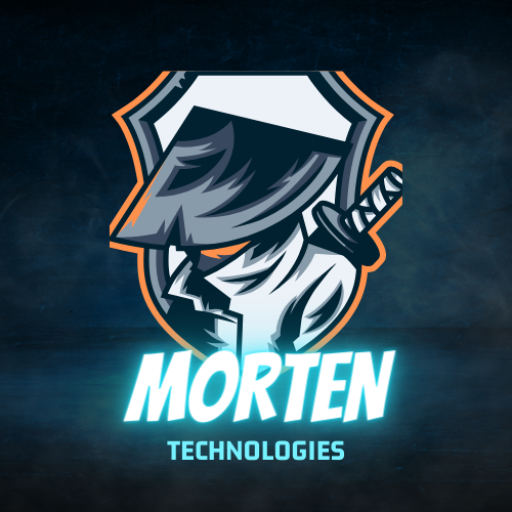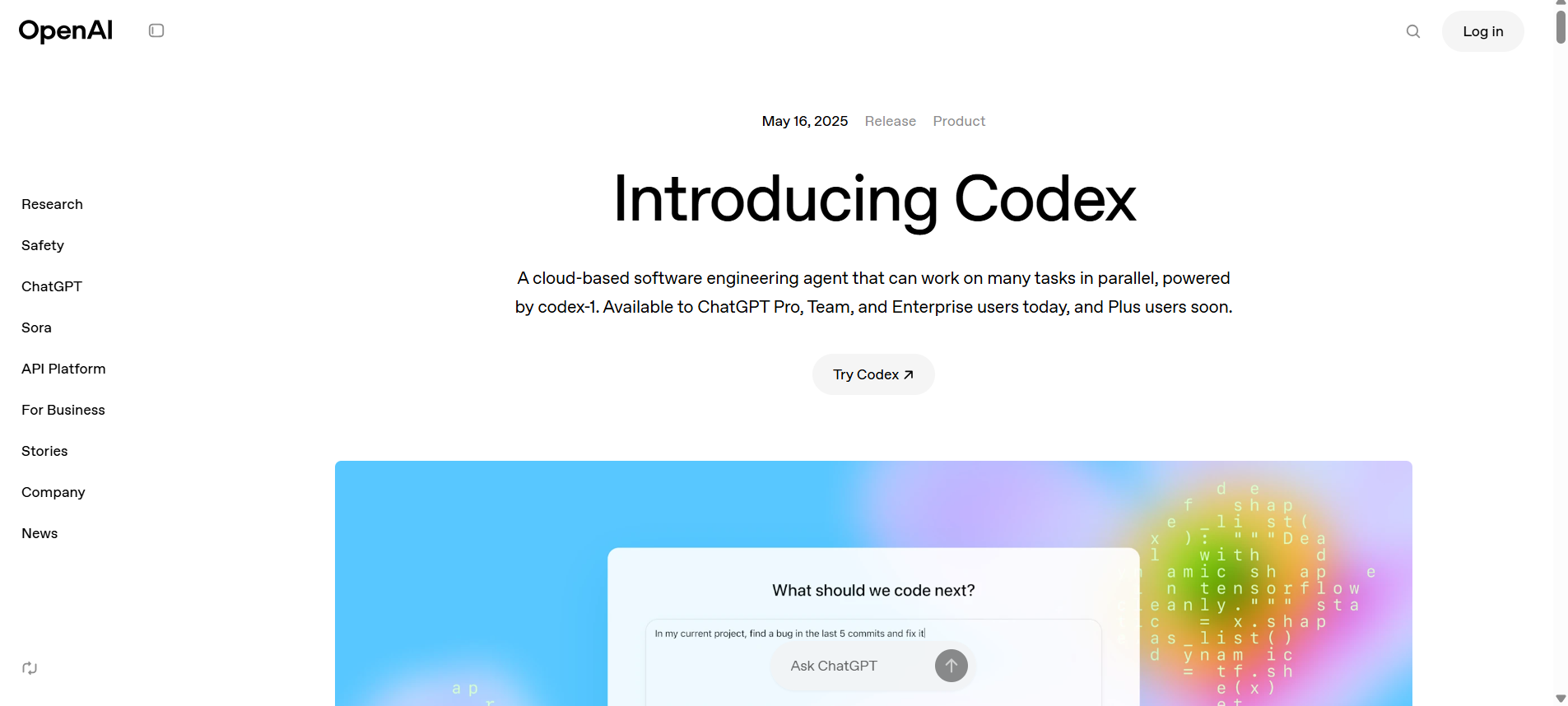OpenAI has unveiled the research preview of Codex, its most advanced AI-powered coding assistant to date. Codex is driven by codex-1, a specialized version of OpenAI’s o3 AI reasoning model, fine-tuned specifically for software development tasks.
According to OpenAI, codex-1 generates cleaner, more efficient code, follows developer instructions more accurately, and performs automated test iterations until successful results are achieved. The Codex agent operates in a secure, cloud-based virtual environment and can seamlessly integrate with GitHub, allowing it to access and preload your code repositories for a more efficient workflow.
With Codex, developers can expect rapid performance—handling tasks like writing simple features, fixing bugs, answering questions about the codebase, and running tests in as little as one to 30 minutes. Impressively, Codex can manage multiple programming tasks at once, all while users maintain full access to their local machine and web browser.
This new AI coding tool is designed to significantly enhance productivity and streamline software development workflows.

Starting today, OpenAI is rolling out access to Codex, its cutting-edge AI coding assistant, for users subscribed to ChatGPT Pro, Enterprise, and Team plans. Initially, users will enjoy generous access to Codex, though OpenAI confirms that rate limits will be introduced in the coming weeks. To extend usage beyond the standard limits, users will soon have the option to purchase additional credits, according to sources.
OpenAI also plans to expand Codex availability to ChatGPT Plus and Edu subscribers in the near future.
The rise of AI coding tools—sometimes referred to as vibe coders—has been rapid and widespread. Industry leaders at Google and Microsoft report that approximately 30% of their companies’ code is now generated by AI. Competitors in the AI coding space are also making strides: Anthropic launched Claude Code in February, and in April, Google enhanced its own AI coding tool, Gemini Code Assist, with more agent-like functionality.
As the demand for intelligent software development tools continues to grow, Codex is poised to become a key player in shaping the future of AI-assisted programming.
AI Coding Tools See Explosive Growth — OpenAI Joins the Race with Codex
The rapid rise of AI-powered coding assistants—often called vibe coders—has turned the companies behind them into some of the fastest-growing players in tech. One standout, Cursor, reached an annualized revenue of approximately $300 million as of April 2025 and is reportedly seeking new funding at a staggering $9 billion valuation.
OpenAI is now positioning itself to claim a major share of this booming market. The maker of ChatGPT has reportedly finalized a $3 billion acquisition deal for Windsurf, a well-known AI coding platform. In parallel, the launch of Codex marks a clear step in OpenAI’s push to expand its own suite of AI development tools.
Codex is now available in the ChatGPT interface for eligible users. Located in the sidebar, Codex allows developers to initiate coding tasks simply by entering a prompt and clicking the “Code” button. Users can also ask detailed questions about their codebase using the “Ask” button. Assigned tasks are displayed in a task manager beneath the prompt bar, where users can track progress in real time.
During a media briefing ahead of the launch, Josh Tobin, OpenAI’s Agents Research Lead, explained the company’s long-term vision for Codex: to function as a virtual teammate capable of autonomously completing software engineering tasks that would otherwise take human developers hours—or even days. OpenAI is already leveraging Codex internally to automate repetitive workflows, build new features, and generate technical documentation.
OpenAI Prioritizes Safety and Reliability in Codex Launch, Expands Developer Tools with Codex CLI
OpenAI is emphasizing safety and reliability in its rollout of Codex, its advanced AI coding assistant. According to Product Lead Alexander Embiricos, much of the safety infrastructure developed for OpenAI’s o3 model has been integrated into Codex. In a recent blog post, the company stated that Codex is designed to refuse requests to create malicious software and operates in a secure, air-gapped environment—meaning it has no access to the internet or external APIs. This setup minimizes the risk of misuse but may also limit certain functionalities for advanced users.
Like all current generative AI models, Codex is not immune to errors. A recent Microsoft study revealed that leading AI coding agents—including Claude 3.7 Sonnet and o3-mini—struggled to consistently debug software. Despite these limitations, investor interest in AI-powered development tools continues to grow rapidly.
In addition to Codex, OpenAI is also updating its open-source Codex CLI—a command-line AI coding agent—with a new version of its o4-mini model, optimized for software engineering. This updated model is now the default in Codex CLI and is available via OpenAI’s API at a cost of $1.50 per 1 million input tokens and $6 per 1 million output tokens. To put that in perspective, 1 million input tokens equates to roughly 750,000 words—more than the entire Lord of the Rings trilogy.
Codex is part of OpenAI’s broader strategy to expand ChatGPT beyond its core chatbot functionality. Over the past year, the company has introduced several premium tools for subscribers, including access to Sora (its AI video generator), Deep Research (a research-focused agent), and Operator (a web-browsing assistant).
With Codex now in the mix, OpenAI is not only enhancing the value of its ChatGPT subscription tiers but also offering a compelling reason for power users and development teams to upgrade and purchase additional usage credits.
Stay tuned to mortentechnologies.com for more such AI updates!











Leave a Reply